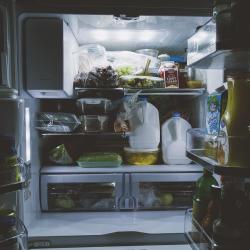How to Handle and Store Eggs Safely
Eggs are a staple in many kitchens around the world, celebrated for their versatility, nutrition, and role in countless recipes. However, they are also a food that requires careful handling and storage to ensure safety and prevent foodborne illness. This article will guide you through the best practices for handling and storing eggs safely.
Understanding the Risks
Eggs can carry Salmonella, a type of bacteria that can cause food poisoning. Although modern egg production methods have significantly reduced the risk of Salmonella in eggs, it's still essential to handle and store them properly to minimize any potential hazards.
Buying and Inspecting Eggs
-
Choose High-Quality Eggs: When purchasing eggs, check the carton for a "sell by" or "expiration" date to ensure you're buying fresh eggs. Look for Grade A or AA eggs, which indicate higher quality.
-
Inspect for Cleanliness and Cracks: Avoid cartons with soiled eggs or eggs with cracks. A cracked shell can create an entry point for bacteria, increasing the risk of contamination.
Safe Handling Practices
-
Refrigerate Promptly: Refrigerate eggs as soon as possible after purchase. Room temperature storage can promote bacterial growth.
-
Keep the Shells Intact: Handle eggs carefully to avoid cracking the shells. Once the shell is compromised, the egg is more prone to contamination.
-
Wash Hands and Surfaces: Always wash your hands, utensils, and surfaces with soap and water before and after handling eggs to prevent cross-contamination with other foods.
-
Separate from Other Foods: Store eggs separately in the refrigerator to prevent cross-contamination, especially from foods that will be eaten raw.
Proper Storage Techniques
-
Refrigerator Storage: Store eggs in their original carton on a shelf in the refrigerator, not in the door. The carton helps protect eggs from absorbing strong odors and flavors and prevents moisture loss.
-
Optimal Temperature: Keep eggs refrigerated at or below 40°F (4°C). Consistent refrigeration at this temperature helps maintain egg quality and safety.
-
Observe the Expiration Date: Use eggs within three to five weeks of the purchase date for the best quality, although they are often safe to eat beyond this time frame if stored properly.
Cooking Eggs Safely
-
Cook Thoroughly: Cook eggs until both the yolk and white are firm. Recipes that include raw or undercooked eggs, such as homemade mayonnaise or certain desserts, should use pasteurized eggs to reduce the risk of Salmonella.
-
Use a Food Thermometer: For dishes containing eggs, cook to an internal temperature of 160°F (71°C) to ensure safety.
-
Serve Immediately or Chill Quickly: Serve cooked eggs and dishes containing eggs immediately. If not served right away, refrigerate them promptly.
Handling Eggshells and Leftovers
-
Dispose of Eggshells Carefully: After cracking eggs, dispose of the shells promptly and wash your hands thoroughly to reduce the risk of contamination.
-
Store Leftovers Properly: Refrigerate leftover egg dishes promptly and consume them within three to four days. Reheat leftovers to at least 165°F (74°C) before eating.
Conclusion
Handling and storing eggs safely is crucial to reducing the risk of foodborne illness and ensuring that you and your family can enjoy eggs as a nutritious and delicious food source. By following these guidelines for purchasing, storing, and cooking eggs, you can minimize the risks associated with Salmonella and other potential hazards, while enjoying the wide variety of dishes that eggs make possible. Remember, safe food handling is always the first step to great cooking!





















